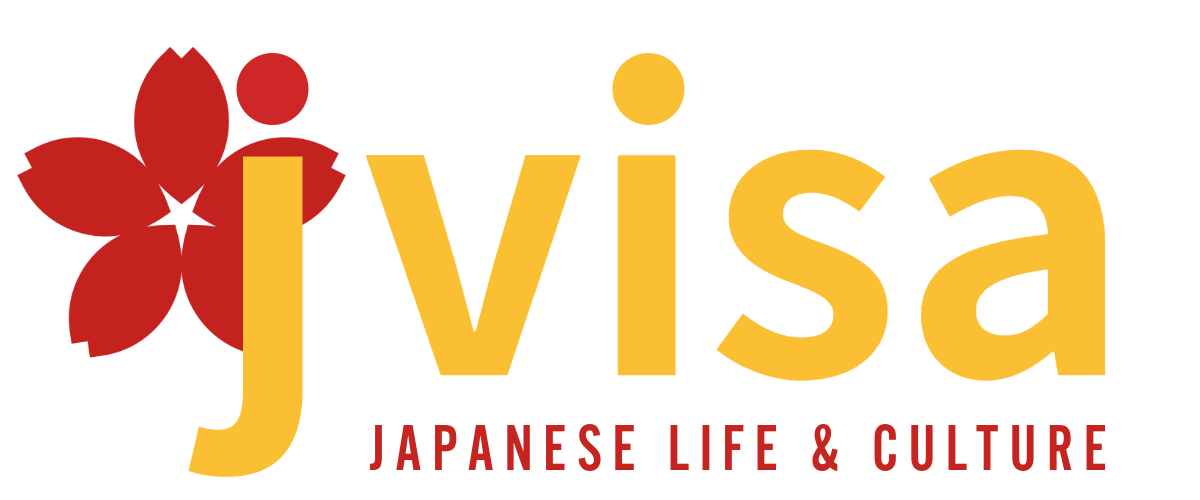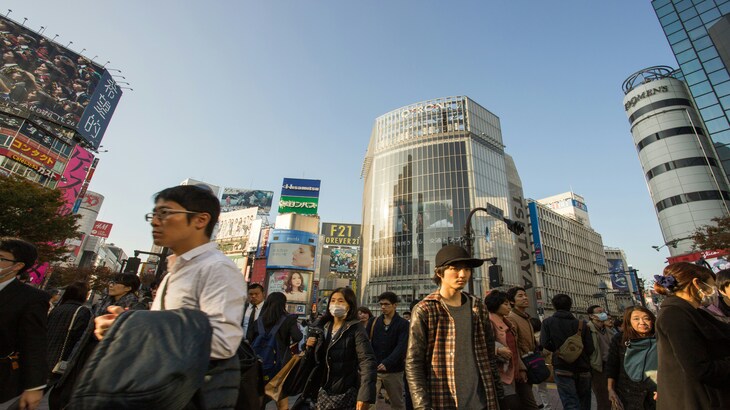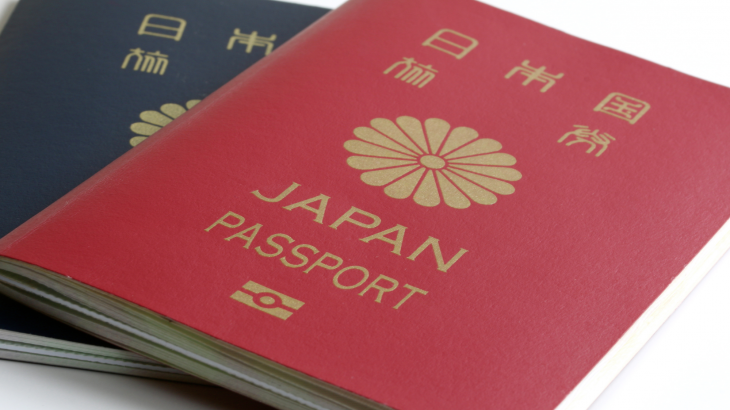“Is it possible to go to Japan as a Technical Intern with only a middle school diploma?” This is a common question for many who intend to work abroad in Japan. The answer is “Absolutely possible”!
However, when becoming an intern without a high school diploma, you need to pay attention to some information and conditions. Below, jvisa will provide you with complete information you need to know for a smooth start to your desire to live and work in Japan.
What is a technical intern?
A technical intern (also known as a foreign skilled intern) is a mechanism for providing vocational training to foreign workers aged 16 to 50 in Japanese companies, helping them apply the skills they have learned and practiced so that when they return to their home country, they can apply these skills to help develop their country’s economy and industry.
The permitted stay in Japan as a “technical intern trainee” is up to 3 years, counting the total time of “technical intern trainee No. 1″ and ” technical intern trainee No. 2″.

Conditions to become an intern in Japan
Age
To work abroad in Japan as an intern, workers must be between 18 and 35 years old (calculated from the time of entry and must reach the required age by the month of participation). This age range is considered to be the age group most likely to quickly adapt to work and have the best health.
Workers aged 18 to 35 are more likely to be selected and work in the most suitable industries. Nowadays, companies also accept very few workers over 35 due to the specific nature of the work.
Gender
Japanese companies and associations do not strictly impose gender restrictions on workers. If you meet the recruitment requirements, both men and women can apply and be selected. However, there are industries where the number of female workers is higher, while in some industries, males are preferred.
The difference in the ratio of male to female workers in some industries mainly stems from physical fitness and the peculiarity of the work. For example:
- Construction, mechanics, assembly: Male applicants are preferred due to the physically demanding nature of the work, requiring workers to have endurance for continuous outdoor work, and to withstand irregular weather conditions.
- Garment, food processing, agriculture: More female workers are recruited as the work is less physically demanding, mainly requiring attention to detail and dexterity.

Appearance
Appearance is not a prerequisite for becoming an intern in Japan. In fact, Japan does not have strict requirements for appearance. Depending on the specific needs of the work, height and weight of candidates may be considered.
Requirements for height and weight of interns will be adjusted by the hiring company and will be specifically notified. Typically, appearance conditions are as follows:
- Female: Height of at least 1.50 meters, weight of 45 kilograms or more
- Male: Height of at least 1.60 meters, weight of 50 kilograms or more
Health
Health is the top factor that Japanese companies and associations require of candidates participating in the internship program in Japan. To be accepted, the health examination results of workers must be good and certified by a medical agency licensed according to the standards of the Japanese embassy.
However, you should note that there are 13 groups of diseases prohibited by the Japanese government:
- Neurological disorders: Movement disorders, brain tumors, spinal cord atrophy, etc.
- Cardiovascular diseases: Congenital heart disease, coronary artery disease, valve defects, etc.
- Gastrointestinal diseases: Hepatitis, peptic ulcers, intestinal stenosis, digestive tract cancer, etc.
- Respiratory diseases: Asthma, pleural effusion, pulmonary fibrosis, etc.
- Endocrine diseases: Diabetes, adrenal gland tumors, hyperthyroidism, etc.
- Reproductive organ diseases: Reproductive organ abnormalities, ovarian cysts, bladder cancer, etc.
- Mental disorders: Hysteria, schizophrenia, mood disorders, etc.
- Eye diseases: Macular degeneration, conjunctivitis, optic neuritis, etc.
- Dermatological diseases: Psoriasis, tattoos on the skin, HIV/AIDS, etc.
- Kidney and urinary tract diseases: Acute and chronic glomerulonephritis, multiple renal tumors, urinary stone, etc.
- Musculoskeletal diseases: Stage 3 spinal degeneration, osteomyelitis, spondyloarthritis, etc.
- Ear, nose, and throat diseases: Pulmonary atelectasis, respiratory tract obstruction, pulmonary adhesion, etc.
- Dental and maxillofacial diseases: Maxillofacial abnormalities, oral cavity cysts, and various types of tumors, etc.
Language
To meet the language requirements for the internship program in Japan, you need to have basic Japanese communication skills. Some industries require a level equivalent to N4 or at least a Japanese language certificate from N4.
For candidates who have not reached the required language level, they can participate in basic or advanced Japanese language training courses before going through the immigration procedures, typically lasting 4 to 6 months. The course will help workers reinforce their knowledge, create a stepping stone for easy communication, and minimize language barriers.
4 Industries for Workers Without High School Diplomas
Even with only a middle school diploma, you can still work in some designated industries:
Agriculture
When working in agriculture, workers can choose from various jobs such as greenhouse farming, field crop cultivation, livestock and poultry farming, and many others.
The salary for each job will vary depending on the nature and location of the work. On average, salaries in the agriculture sector range from about $1,140 to $1,300 USD.
Food Processing Industry
The food processing industry is one of the main industries in Japan. When participating in food processing orders, you can perform tasks such as making sweets, preparing boxed lunches, producing confectionery, and processing fast food. This is considered a safe, light, and stable long-term career option for workers, as most of the work is done indoors and about 80% of the work is done on production lines.
Salaries in the food processing industry depend on various factors; however, on average, salaries range from about $1,140 to $1,385 USD per month, excluding additional income from overtime and extra work. Particularly, when choosing this industry, workers will have time for additional work, thereby increasing their income.
Construction Industry
The construction industry in Japan provides many job opportunities for workers, offering a wide range of job options. Types of construction orders include scaffolding, carpentry, well drilling, roofing, glass installation, and more.
Generally, wages for foreign workers in the construction industry range from about $1,140 to $1,910 USD per month (excluding overtime and extra hours).
Garment Industry
The garment industry is a familiar sector for Vietnamese workers and is a popular choice for participation in the Japanese work abroad program.
Work is typically performed in stable workshop environments, with plenty of opportunities for overtime. Basic salaries in this industry range from $730 to $1,000 USD per month (excluding overtime pay).
How much do you need to pay to go to Japan?
On January 15, 2019, the Japanese Embassy stipulated:
“The fee that the sending agency is allowed to collect from skilled interns is from $3,600 USD or less (for a 3-year contract) and a training fee before departure of $240 USD.
Do not assume that because the cost is high, it is safe. Some companies do not comply with regulations and are currently charging high fees.
Some companies are trying to charge additional fees under various categories other than the $3,600 USD and $240 USD fees mentioned above.
Some companies charge health examination fees and visa fees within the $3,600 USD, but some do not include them in that amount.
Some companies require candidates to pay a large amount of money under the guise of uniform costs, workshop fees, etc., outside of the $3,600 USD. On the other hand, some companies provide a comprehensive fee package under $5,000 USD.
Make sure to confirm in advance how much all the fees are and do not pay for unnecessary fees. When paying, make sure to get a receipt to prove what fees you have paid with the specific amount. This is the basis for reclaiming the amount you have paid in case you discover that you have been deceived.
Contact the agency directly rather than going through brokers to avoid being asked for unnecessary fees.
Even if you have relatives or influential people to support you, you should not use brokers to avoid wasting money.”
Note: To stay updated with the latest information, you can search for information on the official websites of authoritative agencies such as the Japanese Embassy, the Ministry of Labor, etc.

Tips to Save Money as a Technical Intern in Japan
Learn Japanese
One of the initial costs when considering going to Japan is language learning. Mastering Japanese not only enables smooth communication but also helps in understanding information and enjoying local services more effectively.
To reduce costs, instead of spending a large amount of money to learn Japanese in Japan, you can self-study at home using free or low-cost online resources and language exchange programs. Seeking scholarships or financial assistance for potential interns to study the language is also a reasonable option to minimize expenses.
Government and Non-Governmental Support
Governments and non-governmental organizations (NGOs) may provide support programs that can help reduce costs.
Some countries offer financial support to citizens participating in international training programs. This may include travel expenses, living expenses, or even tuition fees for preparatory courses.
NGOs focusing on skill development and international exchange may provide financial support or resources to reduce living and training costs in Japan.
Financial Planning and Management
Effective financial planning is crucial for managing living expenses in Japan, especially in places with high costs like big cities such as Tokyo, Osaka, etc.
Accommodation: Look for accommodation options provided or recommended by reputable brokerage companies, so you can save time, avoid procedures, and be protected by contracts. Shared accommodations or homestays can also reduce living costs.
Daily Expenses: Plan and manage daily expenses, including food, transportation, and communication. Using local supermarkets, cooking at home, and utilizing public transportation can help save money.

Legal Rights and Salary
Understanding legal rights regarding the Technical Intern Training Program (TITP) wage system is essential for financial planning. Interns are entitled to wages not lower than the minimum wage in the province where they work.
Awareness of Rights: Be aware of your rights regarding working hours, days off, and overtime pay. Knowing these can help prevent abuse and ensure fair treatment.
Financial Management: Wisely manage your income, set aside savings, and plan for necessary expenses. Money transfer services often have associated fees, so compare remittance services to save transaction costs.
Community Integration
Integration into the community and local culture can indirectly bring financial benefits by learning about local information, facilities, and support networks.
Participating in community events and activities can also provide social support and likely lead to additional part-time job opportunities (within the legal limits of your visa).
Summary
At first glance, people often think that going to Japan would incur high costs and require strict conditions. But in reality, by thoroughly researching information through official websites, self-studying Japanese at home using free online materials, and following a sensible spending plan, the cost of living and working in Japan isn’t significantly high. You can still save a considerable amount to send back home to your family. In fact, some individuals who cannot pursue secondary education but only have a high school diploma can still work in specific industries in Japan: agriculture, food processing, construction, and garment. Through this article, hopefully, you will have enough tools to continue pursuing your dream of working in the “Land of the Rising Sun.”










